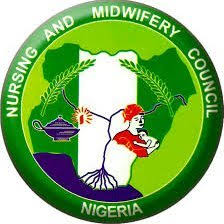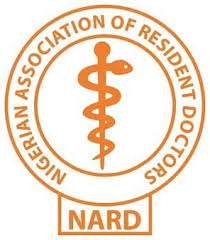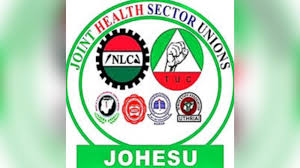Pharmaceutical importers under the aegis of Association of Pharmaceutical Importers of Nigeria have raised alarm on an imminent scarcity and increased cost of medicament in the nearest future. This was contained in a press statement obtained by Medicalworld Nigeria. The statement Reads
IT is trite to say that the purpose of any government anywhere in the world is the welfare of her people; hence the numerous promises of politicians (the world over) that they would not disappoint on the expectations of the people. Nigeria is not different. In this regard, government ensures that she properly thinks through every policy (its implications and all) before publication and implementation.
In a democratic clime, the job of government is made easier because the beauty of participatory democracy is the unwritten doctrine of consultation with all stakeholders before policy formulation, It is hoped that as we grow the democratic culture (that was stalled by the military) our democratically elected officials would erase the 'US and THEM' rnindset and involve all stakeholders in policy formulation and implementation.
.jpg) One of the stakeholders in (affordable) healthcare delivery in Nigeria is the Association of Pharmaceutical Importers of Nigeria (APIN). This association was formed in 2003 and the driving force at that time was to help NAFDAC (as stakeholders) at identifying and reporting the dealers of fake drugs with the aim of eliminating them from the Nigerian market. That APIN's intervention remains a (verifiable) success story. It is also on record that APIN is the only organization in Nigeria to donate drugs and food items (worth million Of naira) to the Nigerian Army to support their operations in the Northeast. The then Chairman Joint Chief of Staff, Air Chief Marshal Alex Barde acknowledged the trail blazing event with heart-felt gratitude_ The Nigerian Police force, Lagos state and Benue state have also benefited from this (patriotism-driver) spirit ofAP IN. Ofthe Federal Government's mantra of 'Health is Wealth', APIN is a stakeholder.
One of the stakeholders in (affordable) healthcare delivery in Nigeria is the Association of Pharmaceutical Importers of Nigeria (APIN). This association was formed in 2003 and the driving force at that time was to help NAFDAC (as stakeholders) at identifying and reporting the dealers of fake drugs with the aim of eliminating them from the Nigerian market. That APIN's intervention remains a (verifiable) success story. It is also on record that APIN is the only organization in Nigeria to donate drugs and food items (worth million Of naira) to the Nigerian Army to support their operations in the Northeast. The then Chairman Joint Chief of Staff, Air Chief Marshal Alex Barde acknowledged the trail blazing event with heart-felt gratitude_ The Nigerian Police force, Lagos state and Benue state have also benefited from this (patriotism-driver) spirit ofAP IN. Ofthe Federal Government's mantra of 'Health is Wealth', APIN is a stakeholder. BACKGROUND INFORMATION
Not many in Nigerian know that 80% of medicaments consumed in Nigeria is imported. Not many know that policy somersaults, multiple taxation and lack of requisite infrastructure did not encourage the growth of pharmaceutical manufacturing companies. Not many know that between just two states in India, Maharashtra and Gujarat states, there are close to 10,000 (Ten Thousand) Pharmaceutical Manufacturing companies, while our entire country (Nigeria) has only 300 drug manufacturing companies. Note however that close to 25% of the 300 companies have folded up, while the others mix production with importation to stay in business. Not many know that there are less than five VVOIRLD HEALTH ORGANISATION certified drugs manufacturing companies in Nigeria; while thousands in India alone are W.H .0 certified. It is also important to mention that there is no functional pharmaceutical company producing small volume parenterals (injections) in Nigeria today. As a rule, all APIN members import drugs from W.H.O/GIVIP (i.e. Good Manufacturing Practice) certified drugs manufacturing companies, a pre-requisite for importing pharmaceutical products by NAFDAC.
INTERNATIONAL RECOMMENDATIONS FOR TARIFF REGIMES ON MEDICAMENTS
In 1988, the W.T.O (World Trade Organisation) recommended to member states importing medicaments not to charge more than 5% duty on imported medicines. Thereafter, ECOWAS Committee on health met, took cognisance of the inadequacy of drugs manufacturing companies in the sub-region, viz-a-viz the growing population and recommended that medicaments should attract 0% duty in every member country. Prior to this, Nigeria was charging IMPORT DUTY OF 20% on Pharmaceutical products plus 5% V.A.T. In 2013, Nigeria decided to abide by the ECOWAS recommendation (like all other member countries) and fixed her Common External Tariff at 0%. The effect today is that despite the astronomical rise in foreign exchange rates, many Nigerians can still afford to buy daily used drugs and medicaments.
NOW!! An attempt is being made via a secular from the Finance ministry to the effect that those medicaments would again start attracting 20% but nick-named IMPORTADJUSTMENT TAZ. This is a clever way of making ECOWAS believe that Nigeria has complied with the recommended C.E.T. while there is actually a return to former 20% import duty, disguised under the name 'IMPORT ADJUSTMENT TAX'. This is in addition to Nigeria's high port charges and V.A.T.
Again, it has become pertinent to intervene and lend our patriotic voices to the looming wind that may blow no one any good. Clearly, government means well for she needs to raise more money to battle the recession. Our fears however centre on 'AT WHAT COST'? All our neighbouring countries are still on 0% duty plus lower port charges. At what cost would the well-flogged Nigerian consumer get the products. Anyone can bet that it would be astronomical. In a country with no welfare system, where the children must take care of their aged parents with the attendant aging problems. How easy would it be for any person when the costs of medicaments soar as a consequence of this policy?
Secondly, what stops anybody from importing via other neighbouring countries on transit to Nigeria, take care of land border agents or use the unorthodox route and bring in the products for higher profit? If this becomes the norm, dealers in fake drugs would resurrect again and start killing Nigerians to make money. We know that the serious government of President Muhammadu Buhari wants the best for Nigeria; so we suggest that it's time for extensive consultation and building of synergy between policy formulators and private sector practitioners in all fields. Nigeria belongs to all of us. The fact that one person is in government and the other is not, does not make the government official more patriotic to Nigeria than the other.
"US and THEM' mindset cannot grow a nation. We should be 'STRONGER TOGETHER'. We plead, on behalf of the poor Nigerian, who needs affordable medicaments, for a rethink of this policy and the enthronement of a fruitful democratic principle of extensive consultation with stakeholders.
God bless Nigeria and the good intentions of our President.
Sir (Pharm) Nnamdi Obi FPSN, FNAPharm President APIN
Pharm Kennedy Izunwa, Technical Director (APIN) FPSN
Barrister Chinweze Ukwuoma, Secretary (APIN)
ABUJA: Training Schedule for Basic Life Support BLS, Pediatric Advanced Life Support (PALS), Advanced Cardiovascular Life Support ACLS, First Aid, CPR, AED
PORTHARCOURT: Training Schedule for Basic Life Support BLS, Pediatric Advanced Life Support (PALS), Advanced Cardiovascular Life Support ACLS, First Aid, CPR, AED
LAGOS: Training Schedule for Basic Life Support BLS, Pediatric Advanced Life Support (PALS), Advanced Cardiovascular Life Support ACLS, First Aid, CPR, AED




